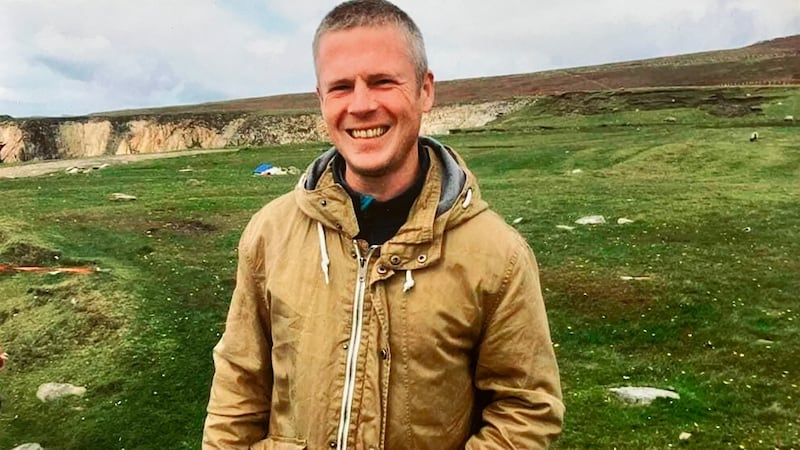The atmosphere in the Portlaoise courtroom was heavy with sadness. Judge Keenan Johnson was only on page six of his 27-page judgment when his measured tones deserted him.
As he described the events of April 17th 2014, and how “in the blink of an eye, the Treacys’ beautiful family life was shattered”, his voice thickened and faded. He reached for a glass of water and the few moments it allowed to recover his composure.
Ronan and Gillian Treacy sat close together, his arm around her, suffering etched on their faces, surrounded by a dozen family and friends. Near them, in the aisle, stood the small, bowed, forlorn figure of Finbarr O'Rourke.
Later, before giving a prison sentence of 7½ years to O’Rourke, Judge Johnson would suggest “that anyone who drinks and drives . . . should ask themselves how they would cope if they found themselves in the position which the accused finds himself in today”.
A small, silent crowd of 25 or so had witnessed O’Rourke’s emergence from a prison van at 10.30am, 30 minutes late, pulling his suit jacket up to conceal his face.
Catastrophic
His catastrophic decision to drive after drinking 9½ pints of cider in four hours had caused the death of the Treacys’ four-year-old son, Ciarán, and left Gillian, his mother, with life-changing injuries. He kept his head bowed as his life leading up to that April day was laid bare.
His marriage had broken up, he was about to lose his job as a travelling salesman for Cadbury’s and he was worried about the mortgage. He had suffered mental health problems since he was 17, and had attempted suicide in 2006, at a time when he was drinking up to two bottles of wine most days.
Yet, he had an unblemished record. It was never his intention to drive home on April 17th; he fell out with his drinking friend, the one he intended to stay with.
One of Gillian Treacy’s last sightings before the fatal collision was of O’Rourke slumped over the steering wheel as his year-old Avensis crossed the road towards her 12-year-old Mondeo. Her last sight of him, as her son lay dying, was of him running towards Portarlington.
“This compounded Mrs Treacy’s understandable inability to forgive the accused for what he did,” noted the judge, adding that he was not convinced O’Rourke was in shock at the time, since he had the presence of mind to ring his friend and lie to gardaí, saying he had consumed two glasses of wine.
Later, the judge gave a glimpse into O’Rourke’s life since the crash.
He was suffering from Post Traumatic Stress Disorder, and had tried to take his life on two occasions. On the night of Ciarán’s death, he had tried to smash his head through a window in the Garda station.
Testimonials
Judge Johnson also noted that O’Rourke was “a good and loving father” to his young children and from the 19 testimonials handed into court with photographs of him with his children, it was clear that he was much loved by his children.
“It is clear that Finbarr O’Rourke is inherently a decent human being who made some very bad decisions on the night of the accident . . .”
Some of the consequences of those decisions became evident later at a press conference, when Gillian Treacy, tears trickling down her face, described their lost little boy: “He was the light of our lives, he was the energy in our home, a lovely, witty, beautiful, boy . . . and that has been taken from us.”
Asked about a letter she had tried to slip to O’Rourke, she said the contents were personal to him and her.
And how was her health? With her next surgery, she said, she could be facing the possibility of losing her lower leg.
“But nothing could ever be as bad as losing Ciarán.”
















